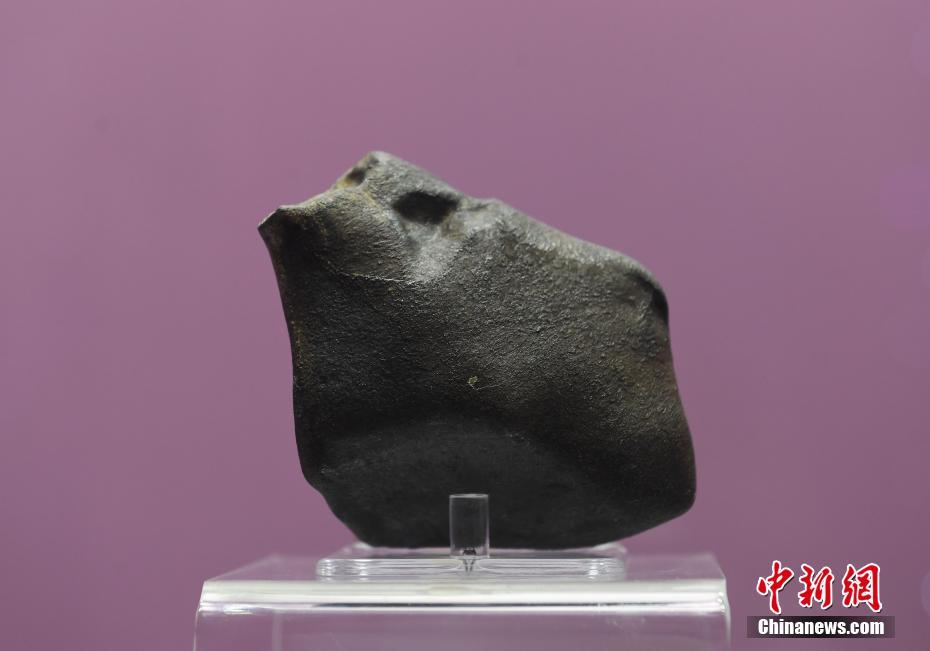【cite cite lucah pecah dara】IT PAYS TO KNOW: 2024 New Laws in California

By JUDD MATSUNAGA, Esq.
I just saw a list of 24 new California laws in 2024 on www.nbclosangeles.com/news. Most Rafureaders wouldn’t be interested most of them, e.g., (1) State minimum wage to increase to $16 per hour; (2) A new emergency alert called an Ebony Alert, used to help locate missing Black women and youth (SB 673); or (3) Department stores with at least 500 employees are required to have a gender-neutral section of children’s toys (AB 1084).
But there is one new law that most Rafureaders who are retired should be aware of. Starting on Jan. 1, 2024, assets, such as bank accounts, cash, a second vehicle, and homes, will no longer be counted when determining Medi-Cal eligibility. That means you could have a million dollars in the bank, own your home (still exempt), and still qualify for Medi-Cal!!!
The way I see it, just about any retired person (on Medicare) should qualify for Medi-Cal. It’s like having long-term care insurance without having to pay the expensive premiums or needing to pass a physical exam. Furthermore, you don’t lose your Medicare by qualifying for Medi-Cal, i.e., you’re “Medi-Medi.” That means you get to keep your same doctors.
You might say, “Hey Judd, I’m a Sansei and thinking about buying long-term care insurance. Are you saying I don’t have to?” NO, I’m not saying that. Behind the scenes, the government knows that it can’t afford to pay the high cost of long-term care when the Baby Boomers get to nursing home age in 5-10 years. So, they will shift the financial burden of long-term care costs from the public sector to the private sector.
In the not-so-distant future, Medi-Cal will not pay for long-term care. Workers will be required to purchase long-term care insurance. There is one state, Washington, which is on this pilot program. The way I understand it, if you don’t buy long-term insurance on your own, you’ll get state-sponsored long-term care insurance that’s not very good. AND, they’ll deduct the premiums from your paycheck — just like Social Security.
Today, however, there’s still Medi-Cal. But in order for Medi-Cal to pay, you have to be in a licensed Medi-Cal facility, e.g., Kei-Ai (the old Keiro), Hollenbeck, Atherton, etc. Medi-Cal will not pay for retirement homes. Medi-Cal will not pay for board-and-care homes. Medi-Cal will pay for skilled nursing homes, or “SNFs.” Medi-Cal will also pay for some assisted living under the Assisted Living Waiver (ALW) program.
If you are already in a nursing home and private paying — STOP! You don’t have to be penniless any longer to qualify for Medi-Cal to pay the high cost of long-term care. If you’re single, your income minus $35/mo. will be owed as “share-of-cost.” For example, if the cost of care is $12,000 per month and you make $2,035 per month in Social Security, you get to keep $35 per month and your share of cost is $2,000. Medi-Cal will pay the difference, even if the cost of care is $20,000 per month.
If you’re married, the “well spouse” or “at-home spouse” keeps all of his or her income and may keep some of the “ill” spouse’s income until they reach the Minimum Monthly Maintenance Needs Allowance (MMMNA) of $3,716 per month. For example, if the ill spouse makes $2,535 per month and the well spouse makes $1.500 per month, the well spouse keeps all of their $1,500 plus $2,216 of the ill spouse’s income so they make $3,716 per month and the share of cost to the nursing home would $319 per month.
You may ask, “But Judd, Mom is still at home. She doesn’t want to go to a nursing home.” I don’t blame her. But chances are, as she grows older, she’s depending on her adult children (or the primary care-giving child) to help her more and more, e.g., drive to the doctor, pay the bills, etc. Chances are, the care-giving child(ren) is/are helping Mom out UNPAID. I’m talking about getting money from In-Home-Supportive-Services (IHSS) so Mom can continue to live in her own home.
IHSS is a county program designed to allow you to live safely in your own home and avoid the need for out-of-home care, i.e., nursing homes. Services almost always need to be provided in your own home, or the home of a relative (such as a son or a daughter). Here’s the good part — you can elect to have them pay a family member, e.g., your daughter, to help you live at home. That’s right! IHSS will pay adult children to help Mom with housework, meal preparation, and personal care, etc.
To be eligible for IHSS, a person must be enrolled in Medi-Cal. Since the new law makes it easy to qualify Mom for Medi-Cal, the trick now is getting the most money from IHSS. IHSS will not pay for 24/7 home care. It’s designed to help pay for part-time home care. IHSS will send a county social worker out to the house to determine the applicant’s “level of ability and dependence upon verbal or physical assistance by another.”
The assessment will evaluate the applicant’s physical, cognitive, and emotional impairments and determine if the applicant has a functional limitation that can be supported by an IHSS-covered service. The more categories you need help with, the more money you get.
In other words, if Mom proudly sticks out her chest and says, “I don’t need any help,” you won’t get any money. So, if there ever was a time to “monku, monku, monku,” this is it.

Remember, there’s a limit on how much IHSS will pay. So even if Mom is bed-bound and can’t do anything, IHSS puts a cap on benefits paid. The maximum number of hours is 283 per month. They will pay the city or county’s minimum wage, approximately $17 per hour. If you get maximum hours in Los Angeles, for example, that’s $4,811 per month!!! That’s “nothing to sneeze at.”
Here’s something that is important — when the county social worker comes out to determine how many hours they will cover, focus on needing help with the services that are covered:
? Personal care like dressing, bathing, feeding, toileting
? Paramedical services like helping with injections, wound care, colostomy and catheter care under the direction of a licensed medical professional
? House cleaning
? Cooking
? Shopping
? Laundry
? Accompaniment to and from medical appointments
Some of the things IHSS cannot pay for include:
? Moving furniture
? Paying bills
? Reading mail to you
? Caring for pets, including service animals
? Gardening
? Repair services
? Sitting with you to visit or watch TV
? Taking you on social outings
? Waiting for you in the doctor’s office
Perhaps the biggest obstacle to seniors qualifying for IHSS is income. Income and income from assets, such as income from property, will continue to be counted. IHSS is generally not available to seniors making more than $1,677 per month, or couples making more than $2,269 per month. If you are slightly over this amount, $200-$500 per month, there are ways to lower your income by purchasing a supplemental dental plan or vision plan in order to qualify for IHSS.
If, however, you own an apartment building and you make an additional $5,000 or more a month, there are still legal ways to transfer the income property to adult children without triggering a three-year waiting period for Medi-Cal so you can get benefits from IHSS. This may or may not trigger some negative tax consequences and you should consult with your elder law attorney before you start making gifts.
Finally, you might say, “I don’t want to qualify for Medi-Cal because they’ll take my house when I die.” Where have you been hiding for the past 20 years? True, they might have taken your mom and dad’s house after their stay at Keiro, i.e., the state can recover for the number of benefits paid, or the value of the home, whichever is less. Under the old law, the only way to avoid recovery is to have nothing left in your estate at the time of death.
But they’ve changed the law. The good news is there are legal ways to protect your home from a future Medi-Cal recovery claim. The current law on Medi-Cal recovery (2017) clearly states that for individuals who die on or after Jan. 1, 2017, recovery is limited to those estates that are subject to probate under California law.
The answer is simple – revocable LIVING TRUSTS. Living trusts avoid probate. The new law clearly state that if the property is not subject to probate in California, the state cannot recover it, i.e., avoiding Medi-Cal recovery. Now you have two solid advantages for making your living trust: (1) Avoiding the legal nightmare called probate, saving tens of thousands in dollars in legal fees; and (2) Protecting your home from a Medi-Cal recovery claim.
Furthermore, there is no disadvantage to you since you appoint yourself the trustee of your own trust. As a trustee, you stay in full control of your assets. If you want to sell your home — you can. If you want to re-finance your home — you can. If you want to change your beneficiaries and/or your successor trustees — you can. Living trusts are not just for the rich, if you own your own home, you need a living trust. A simple will is not good enough.
———————
Judd Matsunaga, Esq., is the founding partner of the Law Offices of Matsunaga & Associates, specializing in estate/Medi-Cal planning, probate, personal injury and real estate law. With offices in Torrance, Hollywood, Sherman Oaks, Pasadena and Fountain Valley, he can be reached at (800) 411-0546. Opinions expressed in this column are not necessarily those ofThe Rafu Shimpo.






Related Articles